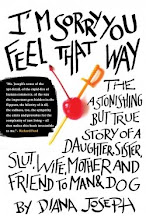After I dig through my papers-to-recycle, I find two different package inserts, each from a different box of syringes.I use a lot of syringes. I've done the math. Out of curiosity.I'll examine the package inserts when I need to.---It's these "Syringe" poems, actually multiple drafts of the same poem, that I have come back to. Five pieces spread across time: 03-21-06 to 12-04-07.---Needle or syringe? Needle is the pointed tube at one end. Syringe is the body cavity numbered for measurement of dosage. It is overall a poor, if not rudimentary imitation of an instrument perfected by nature. Mosquitos have them. Jellyfish have them. Pit vipers and cobras have them. Scorpions have them. Stonefish have them. The animal kingdom bears needles at every turn. Needles are wielded. Here, there are no dosing instructions or trademarks.---"Instructions for use:1. Wash hands and gather supplies. To expose plunger, twist white cap to break seal, then pull off.
2. Wipe top of insulin bottle with a BD™ Alcohol Swab. If you are taking cloudy insulin, roll the bottle between your hands until it is uniformly cloudy. Never shake a bottle of insulin.
3. To expose needle, twist orange cap, then pull straight off, being careful not to bend the needle or let needle touch anything.
That is the interesting part. Steps four through eight are rather tedious, businesslike, accounting and number-management.
---
These poems obsessed over form and left nothing at stake. They feature missiles, phalluses, and a fog of abstraction. I thought about this poem again, this was on Thursday. All those silly revisions. Allow Syringes to become another form. [This is what Process told me.] It wants to take another form. [I nodded, it made sense.] Give to it another form. [Okay. I will.]
---
I imagine a gun that shoots syringes as ammunition. A belt-fed fully automatic gun that de-caps and fires syringes, needles-first. There is no turn. It always goes toward images of warfare and violence.







